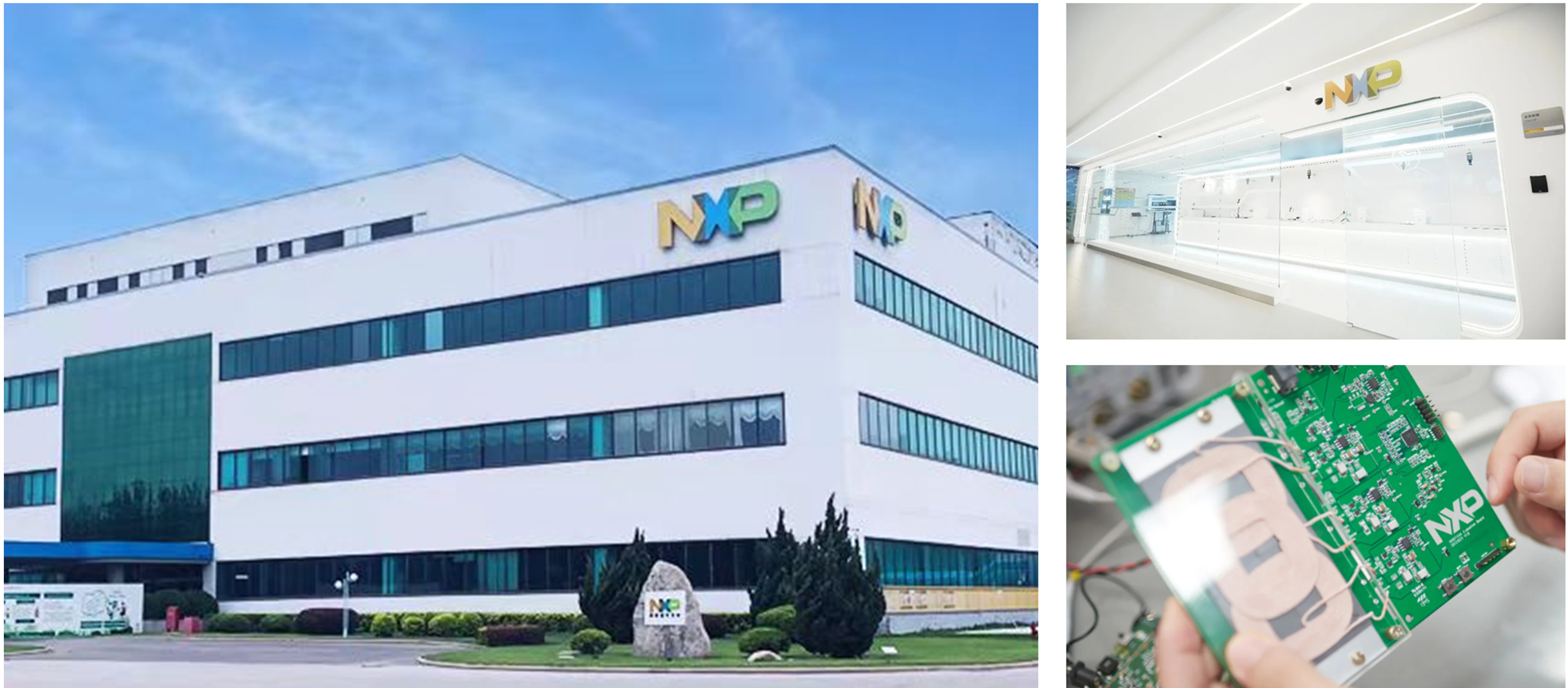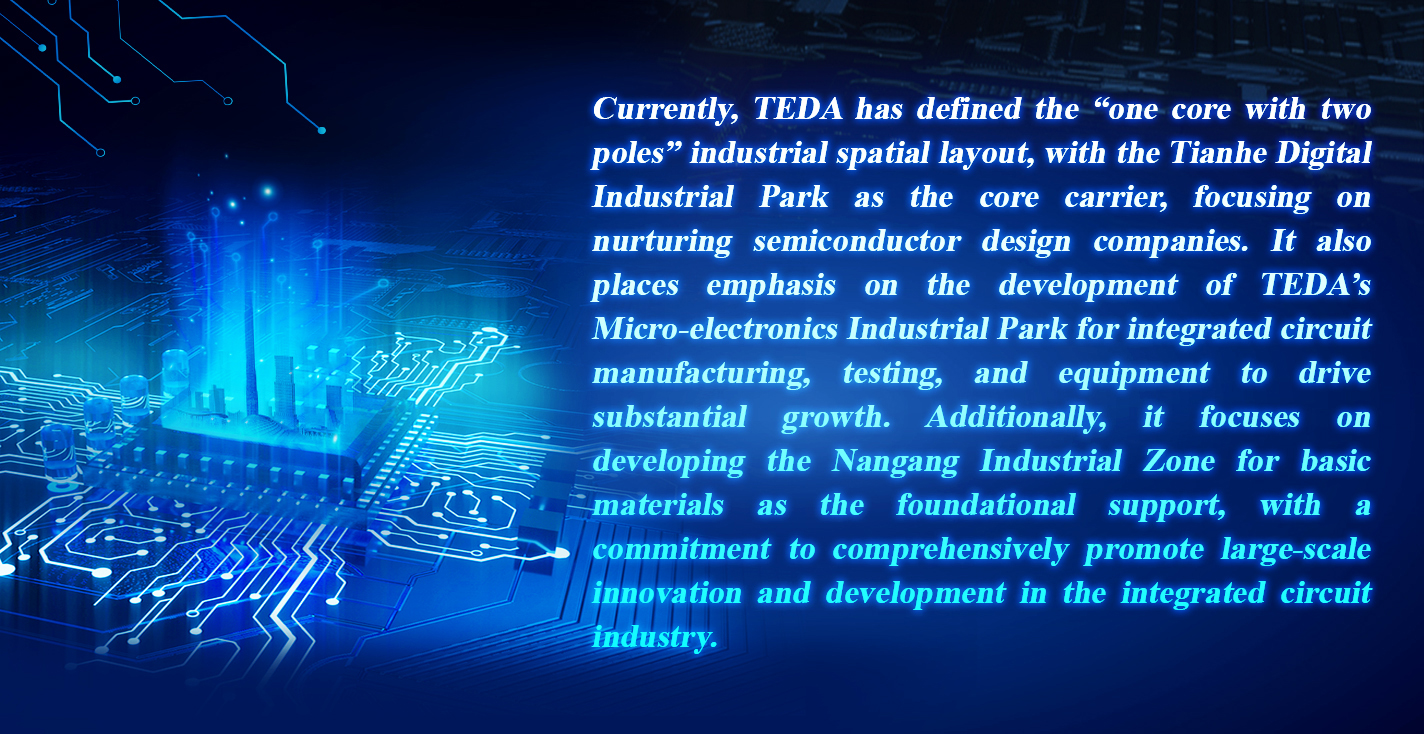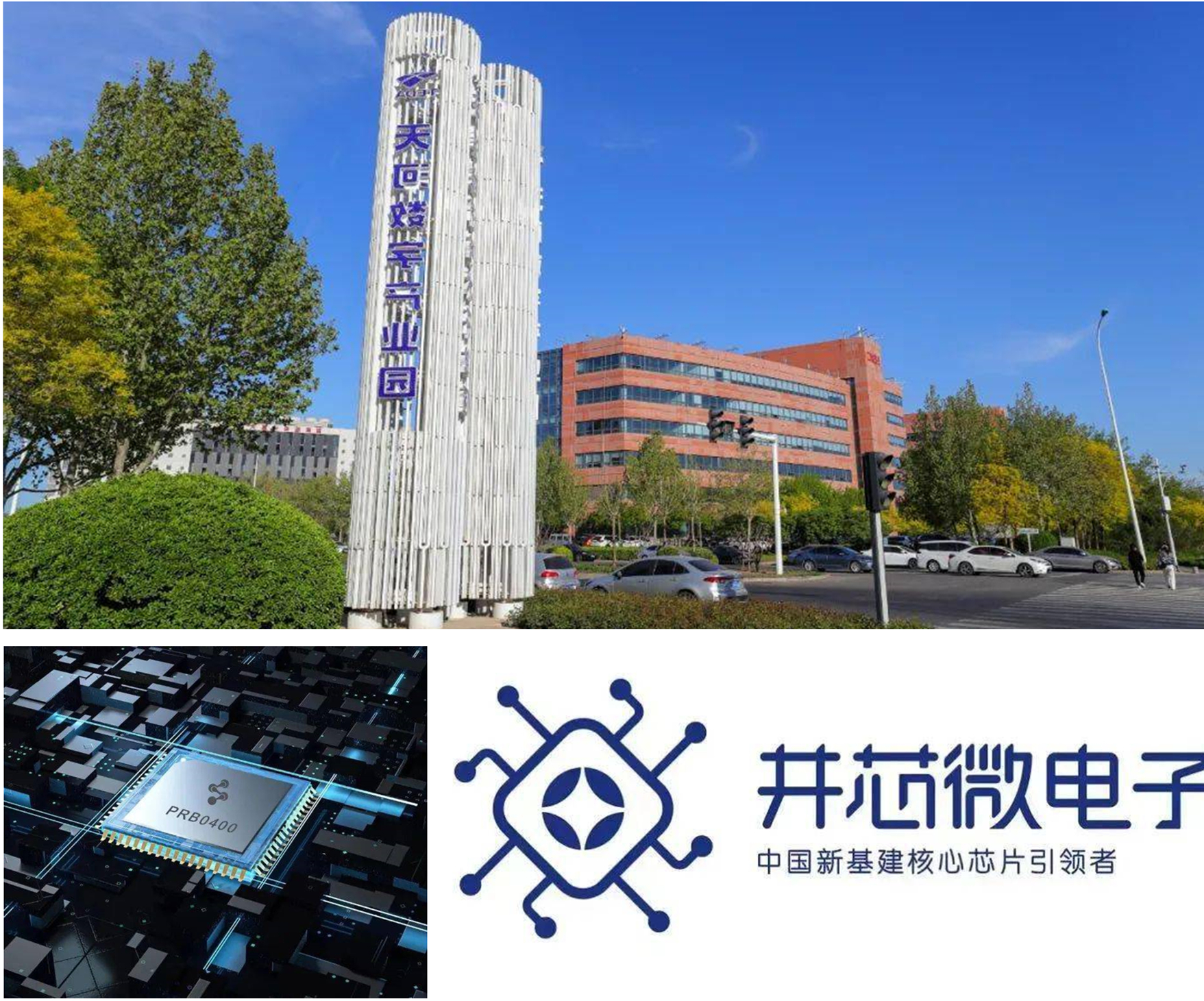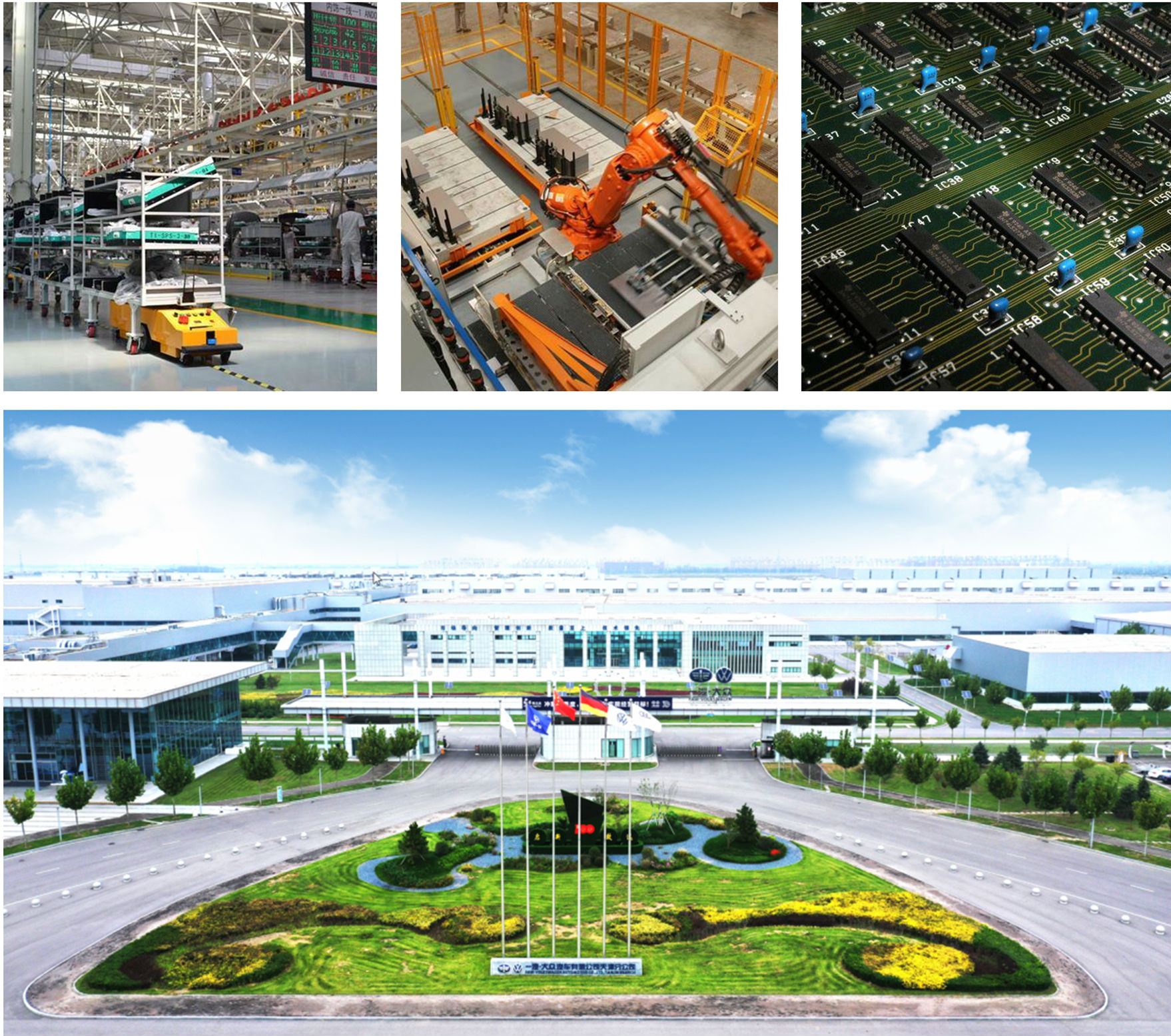A Closer Look at TEDA’s Industrial Chains: Integrated Circuit

The integrated circuit industry is one of the highlighted strategic emerging industries in Tianjin, and also one of the city’s twelve key industrial chains. As a significant carrier for the integrated circuit industry in Tianjin, TEDA is dedicated to creating an industry ecosystem of distinctive features. It has achieved a series of major breakthroughs in projects attraction and product innovation, and has initially established a whole industrial chain with robust growth momentum. TEDA, a world-class industrial new city, is shining together with its pride-worthy integrated circuit industry.

TEDA’s integrated circuit industry captured global attention from its very beginning. Back in 1992, Motorola, the global telecommunications giant, completed $120-million investment registration in TEDA, becoming the first solely-owned high-tech-oriented multinational entity in China. Since then, Motorola has been continuously deepening its localization efforts, injecting strong impetus into Tianjin’s economy. Its technology and management expertise, as well as industry talents are still playing an important role in China’s wireless telecommunications industry today.

Freescale Semiconductor, once the semiconductor division of Motorola, used to supply chips to Motorola cellphones. In 2004, it was spun off from Motorola and became an independent listed company. In the same year, Freescale Semiconductor (China) Limited was established in Tianjin. At the end of 2015, the world’s largest automotive semiconductor supplier, NXP, completed the global acquisition of Freescale. In a way, NXP witnesses the growth of TEDA’s integrated circuit industry all along and plays a crucial role in the integrated circuit industry of TEDA and Tianjin. Currently, NXP has a state-of-the-art packaging and testing factory, an R&D center, and an innovation center in TEDA. Among them, the Tianjin packaging and testing factory is one of the largest integrated circuit packaging and testing facilities in China by scale and output value. NXP Qiangxin is also one of NXP’s most important R&D centers in China, with globally first-class capability in full-process design, digital and analog IP development, security IP development, and integration. In May 2023, NXP decided to deepen its partnership with TEDA, and NXP Qiangxin Integrated Circuit Design Co., Ltd. officially renewed its contract.

When multinationals expand their investment and production, leading domestic companies are also exploring new opportunities in TEDA. The integrated circuit industry in TEDA flourishes, attracting a galaxy of global leaders in the industry and initially formulating an industrial model led by front-end design and marked by ever-improving manufacturing and testing as well as rapid-growing raw materials and equipment. Thus a fully-fledged industry chain gradually take shape. In the design field, there is clear advantages in TEDA, with a number of domestic and foreign leading companies such as Vanchip, ChinaCore, NXP Qiangxin, Chip Sea Innovation, and Jingxinwei continuously innovating and achieving new breakthroughs. In the manufacturing and testing field, TEDA has brought together front runners such as NXP Semiconductors, ROFS Microsystem, HUAV, and Evecom. In the field of discrete components and modules, well-known companies such as Vishay General Semiconductor, Rohm Semiconductor, and Samsung High Tech Electro-Mechanics are the backbone. In the equipment and materials field, Mitsui High-Tec has settled down in TEDA since the 1990s. During the past two years, following the establishment of enterprises such as Capchem and Linggas, the integrated circuit industry chain in TEDA became stronger and stronger with visible clustering effect. Qin Jiusan, Chairman of Capchem, said, “TEDA is a land full of vitality, providing a fertile land for Capchem.”

The clustering of industry-leading companies not only makes TEDA’s integrated circuit industry chain more complete but also optimizes the industry ecosystem.

The Tianhe Digital Industrial Park serves as the core carrier for Tianjin’s information security and digital industry incubation. It hosts various research institutions, including the Tianjin Binhai Integrated Circuit Design Service Center, the National Supercomputer Center in Tianjin, and the Tianjin Binhai New Area Information Technology Innovation Center. These institutions provide comprehensive support for technological innovation of TEDA’s electronic information, intelligent manufacturing, and digital economy, and have yielded significant results. Jingxinwei is one of the projects incubated by the Tianjin Binhai New Area Information Technology Innovation Center. The company has successfully developed a range of indigenous innovation chips, many of which are first of their specific segments in China: the RapidIO switch chip NRS1800, the software-defined interconnect switch chip ST3210, the endogenous safety switch chip ESW5610, and the bridge chip PRB0400. Jingxinwei has received numerous awards, including the China IC Award and the Tianjin Science and Technology Progress Outstanding Prize. Recently, Hyasic Semiconductor (Tianjin) Co., Ltd. has settled down in TEDA at Building 8 of the Tianhe Digital Industrial Park. The company’s R&D Director Sun Junyue expressed that the park has created a good clustering effect among leading digital economy enterprises, making it possible for tech companies to find partners both upstream and downstream.

In 2023, the NXP AI Innovation Center Phase II, known as the AI Innovation Practice Platform, was launched. This platform empowers local innovation through technical training and advanced research and development for its partners. Ron Martino, the Vice President of Global Sales from NXP, stated, “China is always one of NXP’s important markets, and NXP has deepened its interaction with local industry.” Leveraging this platform, NXP has engaged in various forms of cooperation with Tianjin’s government departments and universities in the form of Tianjin Science and Technology Innovation Development Center and the 5G+X Application Joint Innovation Cloud Lab. Such collaboration contributes to the innovation and development of Tianjin’s integrated circuit industry.


TEDA has three 100-billion-yuan industry clusters, namely, auto, electronic information, and new chemical materials. It has been recognized as one of China’s earliest demo bases for the neo-industrialization of automotive, electronic information, and petrochemical industries. Currently, TEDA is home to four mega auto makers, including FAW Toyota, FAW-Volkswagen, Great Wall Motor, and Geely, along with more than 200 various components and service companies, forming a complete automotive industry chain. TEDA also has over 10 domestic and foreign-funded automotive research and development organizations. Additionally, TEDA has a unique national advantage in the field of automotive-grade chip testing. Leveraging NXP’s largest automotive-grade chip testing base in China, TEDA has nurtured a group of high-end talents and upstream & downstream suppliers for automotive-grade chip testing. Moreover, a heavy-weight national standard-making and official certification body, China Automotive Technology and Research Center (CATARC), possesses testing and certification capabilities for automotive-grade chip information security and functional safety.

In line with the actual demand of industrial development, TEDA focuses on such four major sub-industry chains like integrated circuit design, testing, equipment, and materials to create core automotive application scenarios. Relevant departments proactively facilitate communications between local chip companies and auto makers and auto assembly companies so as to accelerate the commercialization of indigenously-developed automotive-grade chips and encourage more chip companies to enter the field of auto-grade chips. With TEDA’s facilitation, Tianjin ChinaCore Technology established in-depth connections with local companies such as Great Wall Motor, Vitesco Technologies, and Denso Electronics to explore more research and development opportunities. In 2023, Tianjin ChinaCore Technology increased capital by 150 million yuan in TEDA for the research and development of high-end 64-bit RISC-V architecture CPUs, which can be used as automotive control chips for leading domestic automotive companies. A technology executive from Tianjin ChinaCore Technology stated that TEDA’s excellent industrial ecosystem, abundant talent pool, and extensive customer resources are important prerequisites for companies to achieve high-speed high-quality growth here.

In September 2023, the China Automotive Chip Standard Testing and Certification Alliance was established in TEDA. The first group of alliance members includes more than 120 Chinese enterprises and organizations along the automotive industry chain. This testing alliance aims to promote the establishment of Chinese automotive chip standards, support product application, foster industry ecosystem development, and serve the whole industry chain. It focuses on areas like new energy and intelligent connected vehicles and sets up basic testing standards, with a mission to shape Tianjin into a new hub for automotive chip inspection and testing in China.


The prosperity of an industry depends on favorable business environment. To promote the sustained and unique growth model of its integrated circuit industry, TEDA has adopted a series of effective measures. Innovative policies have been introduced, such as promotion measures for manufacturing and modern services and 16 measures for technological innovation. These policies provide comprehensive support for integrated circuit industry, covering various dimensions including industry, technology, and talents. TEDA has pioneered the creation of an industrial business environment indicator system in China, benchmarking against international standards. TEDA also has been continuously optimizing its “experts+project managers+chief approval officers” enterprise service system to provide efficient and high-quality services to support investors.

Leveraging the robust financial sector in the region, TEDA has been proactively exploring a “fund + investment promotion” model to attract more new projects. Through local semiconductor-related industry funds such as TEDA Haihe Industrial Fund, Weihao Taihai Fund, Haihe Shunwei Fund, and TEDA Venture Capital, TEDA has successfully attracted projects like OmniVision’s North China Headquarters, Anhao Technology’s specialized chip project, and Yun-link Semiconductor’s WiFi chip project. Furthermore, TEDA relied on its fintech platforms to provide financial analysis and financing support to key investment projects. It has helped Jingxinwei solve its financing, and facilitated the listing of Vanchip on the STAR Market.
Talents are indispensable for integrated circuit industry. Over the years, TEDA has been consistently attracting top talents. Today there are around 4,500 integrated circuit-related talents working in the region, accounting for approximately 40% of Tianjin’s total. TEDA supports initiatives like the Vanchip Scholarship at Tianjin University and Xidian University as well as the “NXP Class” in collaboration with Tianjin University to strengthen its industry talent reserve.
Currently, relying on local leading enterprises and key projects, TEDA is stepping up its efforts in the automotive-grade chip sector to help its automotive chip industry move up the value chain and grow faster on the new racing track of integrated circuit industry.













 津公网安备 12019002000128号
津公网安备 12019002000128号

